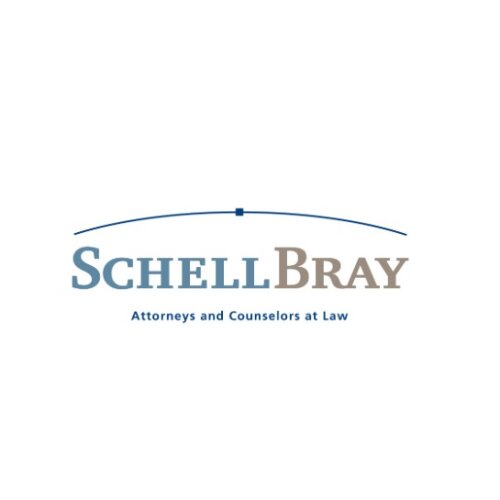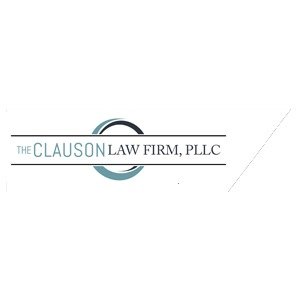Best Nonprofit & Charitable Organizations Lawyers in North Carolina
Share your needs with us, get contacted by law firms.
Free. Takes 2 min.
Or refine your search by selecting a city:
List of the best lawyers in North Carolina, United States
About Nonprofit & Charitable Organizations Law in North Carolina, United States
Nonprofit and charitable organizations play a vital role in North Carolina by providing essential services, supporting local communities, and advancing various social, educational, religious, and charitable causes. In North Carolina, these organizations are primarily governed by state law, federal regulations, and sometimes local ordinances. Nonprofits can take many forms, including charitable trusts, foundations, and incorporated nonprofit associations, with most organizations seeking both state nonprofit status and federal tax-exempt status. Navigating these legal requirements is crucial for proper formation, compliance, and ongoing operations.
Why You May Need a Lawyer
Seeking legal guidance is important for anyone considering starting, managing, or serving on the board of a nonprofit in North Carolina. Common situations where you might need a lawyer include:
- Formation of a new nonprofit organization and drafting organizational documents
- Obtaining and maintaining federal tax-exempt status (IRS 501(c)(3) and others)
- Ensuring compliance with state charitable solicitation and fundraising laws
- Dealing with employment and volunteer-related legal issues
- Advising on board governance, fiduciary duties, and conflict of interest policies
- Handling mergers, dissolutions, or significant asset transfers
- Assisting with annual filings and state reporting requirements
- Responding to IRS audits or state investigations
- Reviewing or negotiating contracts and leases
- Addressing intellectual property concerns, such as trademark and copyright
Local Laws Overview
North Carolina law sets specific requirements for nonprofit and charitable organizations. Key legal aspects include:
- Organizational Structure: Most nonprofits are formed by filing Articles of Incorporation with the North Carolina Secretary of State, following the North Carolina Nonprofit Corporation Act (Chapter 55A).
- Governance: Nonprofits must adopt bylaws and maintain a board of directors. Directors owe fiduciary duties of care, loyalty, and obedience to the organization.
- Charitable Solicitation: Almost all organizations soliciting funds from the public must register with the North Carolina Secretary of State’s Charitable Solicitation Licensing Division and renew that registration annually.
- Taxation: Nonprofits can be exempt from state and federal income taxes, but must apply for 501(c)(3) (or other) status with the IRS, and may need to separately apply for state tax exemptions.
- Reporting: Nonprofits must file an Annual Report with the Secretary of State. Charitable organizations must also file financial reports as part of their solicitation license renewal.
- Dissolution: There are specific steps for dissolving a North Carolina nonprofit, including submitting a plan of dissolution and proper distribution of remaining assets.
- Other Laws: Nonprofits must comply with federal and state employment laws, intellectual property, real estate, and potentially other regulations depending on their area of work.
Frequently Asked Questions
What is a nonprofit organization in North Carolina?
A nonprofit in North Carolina is an organization created for educational, charitable, religious, or similar purposes, that does not distribute profits to owners or members. Most are incorporated under state law and may seek tax-exempt recognition from the IRS and the state.
How do I start a nonprofit in North Carolina?
To start a nonprofit, you typically must choose a name, file Articles of Incorporation with the North Carolina Secretary of State, create bylaws, appoint a board, obtain a federal EIN, and apply for tax-exempt status with the IRS and state.
What is required to maintain nonprofit status in North Carolina?
Nonprofits must hold regular board meetings, keep records, maintain compliance with organizational bylaws, file annual reports with the state, and maintain good standing with the IRS and North Carolina Department of Revenue.
What is the difference between a nonprofit and a 501(c)(3)?
A nonprofit is a state designation for organizations formed for public benefit and not for profit. A 501(c)(3) refers to a federal tax-exempt status, meaning the IRS recognizes the organization as charitable and donations may be tax deductible.
Do North Carolina nonprofits need a charitable solicitation license?
Most organizations soliciting donations from the public must register with the Secretary of State’s Charitable Solicitation Licensing Division and renew annually unless a specific exemption applies.
Who can serve on a nonprofit's board in North Carolina?
Any individual who is at least 18 years old can serve on a board. North Carolina requires a minimum of one director, but most organizations have at least three for good governance.
Are board members or officers personally liable for debts of the nonprofit?
Generally, board members and officers are protected from personal liability for organizational debts if they act in good faith and comply with their fiduciary duties. There are exceptions for fraud, illegal acts, or breaches of duty.
What happens if a nonprofit fails to file annual reports?
Failure to file required annual reports with the Secretary of State can lead to administrative dissolution of the organization. Federal tax-exempt status may also be revoked if IRS returns are missed.
Can nonprofits pay their board members or officers?
Nonprofits may compensate officers and employees for services rendered, but most board members serve without pay. Excessive compensation or conflicts of interest must be avoided to retain tax-exempt status.
How do I dissolve a nonprofit in North Carolina?
The organization must approve a plan of dissolution, file Articles of Dissolution with the Secretary of State, notify the IRS and state, and distribute remaining assets in compliance with state and federal law.
Additional Resources
Here are helpful resources for nonprofits and those seeking legal advice in North Carolina:
- North Carolina Secretary of State - Charitable Solicitation Licensing Division
- North Carolina Department of Revenue - Nonprofit Tax Exemption Unit
- Internal Revenue Service - Exempt Organizations
- North Carolina Center for Nonprofits
- Pro Bono Resource Center of North Carolina
- Local legal services organizations and law school clinics
Next Steps
If you need legal assistance regarding your nonprofit or charitable organization in North Carolina, consider the following steps:
- Identify your specific legal needs, such as formation, compliance, employment, contracts, or dissolution
- Gather your organizational documents and any relevant correspondence or notices
- Contact a lawyer with experience in nonprofit law or reach out to legal aid organizations for possible assistance
- Use the resources listed above to research requirements and prepare questions for your attorney
- Ensure ongoing compliance by reviewing state and federal filing requirements annually
Careful legal planning and timely advice are key to the success and sustainability of your nonprofit organization in North Carolina.
Lawzana helps you find the best lawyers and law firms in North Carolina through a curated and pre-screened list of qualified legal professionals. Our platform offers rankings and detailed profiles of attorneys and law firms, allowing you to compare based on practice areas, including Nonprofit & Charitable Organizations, experience, and client feedback.
Each profile includes a description of the firm's areas of practice, client reviews, team members and partners, year of establishment, spoken languages, office locations, contact information, social media presence, and any published articles or resources. Most firms on our platform speak English and are experienced in both local and international legal matters.
Get a quote from top-rated law firms in North Carolina, United States — quickly, securely, and without unnecessary hassle.
Disclaimer:
The information provided on this page is for general informational purposes only and does not constitute legal advice. While we strive to ensure the accuracy and relevance of the content, legal information may change over time, and interpretations of the law can vary. You should always consult with a qualified legal professional for advice specific to your situation.
We disclaim all liability for actions taken or not taken based on the content of this page. If you believe any information is incorrect or outdated, please contact us, and we will review and update it where appropriate.
Browse nonprofit & charitable organizations law firms by city in North Carolina
Refine your search by selecting a city.










